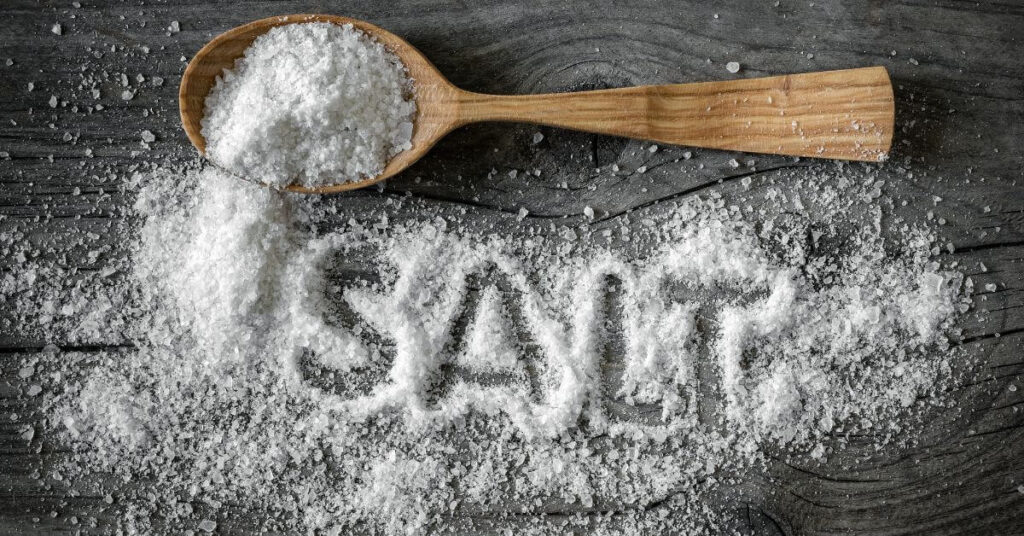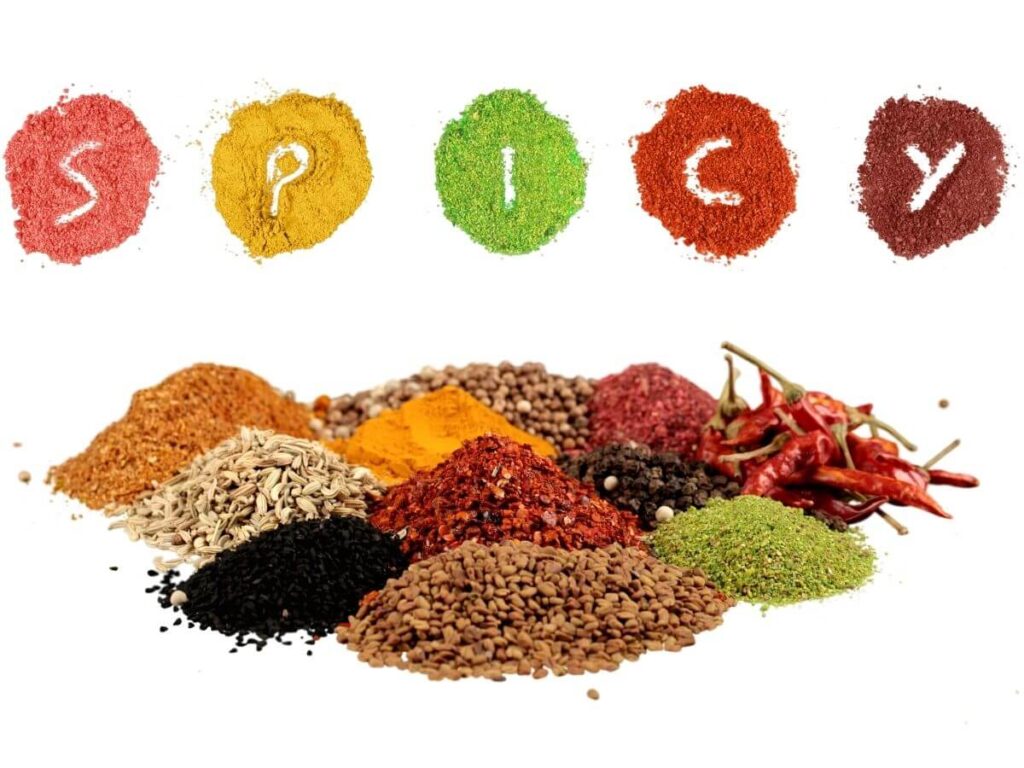
Have you ever eaten a dish that was just too salty? Or taken a sip of something with an overpowering saltiness? A salty taste in the mouth can be unpleasant and difficult to get rid of. Fortunately, there are several ways to get rid of this pesky problem. From simple home remedies like drinking water or eating certain fruits and vegetables to more involved solutions such as using baking soda or brushing your teeth, you can quickly reduce the amount of saltiness in your mouth. With these tips and tricks, you’ll never have to worry about dealing with a salty taste again!
Fun fact: saliva (spit) normally contains sodium, but it remains consistent. Your taste buds know this, so you don’t normally recognize a salty taste from your saliva.
When you consume food, the chemical makeup of your meal activates taste receptors on your tongue, which feed data to your brain. This sensitive process recognizes five flavors (bitter, sweet, salty, sour, and savory). However, medical issues or medications can disrupt this sensitivity leading to an odd aftertaste in one’s mouth.
If you’ve ever experienced that strange, salty flavor in your mouth, don’t worry – it’s more common than you think. The cause of this taste could be anything from the foods and beverages we consume to medical conditions like GERD.
Fortunately, there are several tried-and-true methods to get rid of the salty taste in your mouth.
9 causes for salty taste in the mouth
Struggling to get rid of the unpleasant salty taste in your mouth? Here are a few common causes:
1. Dehydration
This is probably the most common cause and often has a simple solution!
Your saliva is naturally salty, but when you’re well-hydrated, you don’t notice it. However, when you become dehydrated, the salt in your saliva becomes more concentrated because you don’t have a balance between water and salt in your body. That’s when you may notice a salty taste in your mouth.
Think of it like this. Imagine adding a pinch of salt to a full glass of water. Now imagine adding the same pinch of salt to a teaspoon of water. The teaspoon of water will have a higher concentration of salt because there isn’t as much water to dilute the salt.
Most of the time, you can drink enough water each day and get rid of that unpleasant taste. The recommendation for most people is to drink 2 liters (67.6 oz, or about a half gallon) of water per day. If you are active or live in a hot climate, you may need about 3 liters per day to stay hydrated.
However, if you have certain health conditions (like kidney disease), talk to your doctor about how much water you should drink.
Exercise, eating salty foods, drinking alcohol, having diarrhea, and being in the sun for long periods of time without drinking enough water can all contribute to dehydration.
2. Dry mouth
This is another common cause of having a salty taste in the mouth. As the saliva gets thicker, it accumulates, and your taste buds register the flavor of salt.
A dry mouth (also called xerostomia) can be a symptom of many health conditions (ex: diabetes) as well as a side effect of many medications or even a stuffy nose!
Often, over-the-counter products such as mouthwash or lozenges can be helpful for getting rid of a salty taste in the mouth.
3. Eating salty or spicy food

Consuming highly processed foods that are high in sodium (Ex: pre-made meals or restaurant food) or adding a heavy shake of salt to your food can cause dehydration and make you taste salt.
In addition, eating spicy food can also cause you to notice a salty flavor, presumably because capsaicin (the chemical that creates the spicy sensation) activates salt taste receptors on your tongue.
If you notice this, try these suggestions:
- Avoid adding salt to your food
- Eat more fresh fruits and vegetables instead of highly processed food
- Drink water to flush the excess sodium out of your body
4. Postnasal drip
This is where the body produces an excess amount of mucous that drains down the back of the throat. It’s a common symptom for people who have a sinus infection, a common cold, or even an allergic reaction. The high concentration of salt in the mucous causes you to taste salt in your mouth.
First, try using a neti pot with (ironically) salt water to clear the sinuses and clear out the excess mucous.
If that doesn’t work, you can treat a postnasal drip with over-the-counter medicines that clear excess mucous or relieve allergy symptoms. For a sinus infection, you may need to get a prescription for antibiotics from your doctor.
5. GERD
GERD (or Gastroesophageal Reflux Disease) is when you have stomach acid that leaks backward up into the esophagus. Also called chronic acid reflux, GERD can cause heartburn, a cough that doesn’t go away, and a salty taste in the mouth.
Untreated GERD can lead to other health conditions, so it’s important to address the problem. Many people find relief from chronic acid reflux by taking medicines that decrease acid production or neutralize stomach acid.
If you have these symptoms, talk with your doctor to get a diagnosis and develop an appropriate treatment plan.
6. Infections
Oral infections can have a significant impact on your perception of flavor. Several types of infections can cause a salty taste in the mouth, including:
- Gingivitis – a mild infection of the gum tissue that can cause gums to swell and bleed and bad breath.
- Periodontitis – a severe infection of the gum tissue that can cause sores, loose teeth, and bad breath.
- Sialadenitis – an infection of the salivary glands caused by viruses, bacteria, or some autoimmune diseases (like Sjogren’s Syndrome).
- Oral candidiasis – also known as oral thrush, is a fungal infection in the mouth that can be caused by some medications or health conditions (like diabetes or dry mouth).
Swishing salt water in your mouth can help with mild gingivitis. For more severe oral infections, consult your dentist for treatment options.
7. Autoimmune diseases
Autoimmune diseases are conditions where for some reason, your immune system begins to attack your body. Conditions such as rheumatoid arthritis and lupus can cause you to develop Sjogren’s Syndrome, which is when your immune system attacks your moisture-producing glands.
The salivary glands are a prime target, with the result being a severely dry mouth with foul breath and a salty taste present.
If you have a diagnosed autoimmune disorder and a salty or dry mouth, talk with your doctor to find out what treatments they recommend.
8. Lack of essential nutrients
Our bodies need several nutrients, such as zinc, B12, and others, to function properly. Without enough of these nutrients, your body could change the way it perceives various flavors.
Also, it is common for people to have an electrolyte imbalance. Electrolytes are essential minerals such as sodium, magnesium, calcium, potassium, and more. If you taste salt, an electrolyte imbalance could be the cause since low electrolyte levels can impair acid balance, blood clotting, and even fluid regulation.
Common symptoms of an electrolyte imbalance can include:
- Fatigue
- Headaches
- Irregular heart rate
- Confusion
- Muscle cramps or spasms
If you suspect an electrolyte imbalance as the cause for a salt taste in the mouth, try replenishing the deficient electrolytes and regaining balance through drinking coconut water, smoothies made with fruits and leafy greens, or squeezing the juice of a lemon into your water.
9. Side effects from medications
Medications can cause your taste buds to change and perceive flavors differently. In addition, certain medicines can cause dry mouth, which can create a salty taste in the mouth.
Unfortunately, this isn’t a rare problem since more than 400 different medications can alter taste!
Consult your physician to see if you can try an alternative (or ask if a home remedy might help) if you are taking any of these medications and notice a dry mouth or salty taste:
- Antihistamines – used to treat allergy symptoms.
- Diuretics – for heart or kidney disease.
- Antidepressants
- Sedatives – for anxiety or sleep disorders.
- Chemotherapy – to treat cancer.
- Pain relievers – over-the-counter or prescription medications.
How to get rid of a salty taste in the mouth

There are several ways to free you from tasting salt and resolve the issue. However, like most problems, the solution will vary based on the cause.
For the majority of people, the cause will be dehydration, especially if you’ve been exercising, eating salty food, or out in the sun for prolonged periods. In those cases, drinking water can work wonders.
However, if the cause is something else, you may need to consult with your doctor or dentist to find the root cause and develop a treatment plan and avoid complications.
There are several home remedies you can try and see if they offer relief. Try these ideas to get rid of a salty taste in the mouth:
- Drinking water
- Practicing good oral hygiene – including brushing teeth after meals
- Swishing salt water
- Rinsing with mouthwash or baking soda and water
- Reducing or avoiding alcohol
- Avoiding spicy foods
- Using dry mouth lozenges
- Suck on ice chips or mints
- Chew on fresh ginger root
- Eat sour fruits like lemon, grapefruit, or oranges
When to see your doctor
Most of the time, one of these home remedies will help, and the salty taste will go away on its own once the cause is identified and treated.
However, if they don’t work and the taste does not go away, consult your doctor because the problem may be related to an underlying health condition that needs medical treatment.
You will also want to get an evaluation from your doctor if you suspect you have an infection or have a salty mouth plus any of these symptoms:
- Lump in your neck.
- Difficulty chewing or swallowing.
- Swelling of the salivary glands.
- Hoarseness or change in your voice.
- Other health conditions such as autoimmune disease, kidney disease, diabetes, etc.
FAQs
Here are a couple of frequently asked questions about getting rid of a salty taste in your mouth.
Will the salty taste in mouth go away?
Yes! Most of the time, all you need to do is rehydrate by drinking more fluids, replenishing your electrolytes, or rinsing with mouthwash.
However, if simple remedies like that don’t work and you can’t get rid of the salty taste, you may need to talk with your doctor to make sure you don’t have an underlying health condition that needs medical treatment.
Does a salty taste in the mouth mean high blood pressure?
Not usually, no. It could simply mean you’ve eaten too much salty food. However, an overall change in your sensitivity to salt can indicate the onset of high blood pressure.
Many things can cause you to notice a salty taste in your mouth. Often, the cause is something simple that has an easy remedy, such as dehydration, nutritional deficiencies, having a cold, or eating too much salty food.
However, sometimes tasting salt (when you aren’t eating it) can be a side effect of medication or a symptom of a health condition. If you have a salty taste that doesn’t go away, consult your doctor to find the root cause and develop a treatment plan.
More from Home Perch
- How To Make Tomato Sauce Less Acidic
- How to Get Rid of Spicy Taste in Mouth
- Make Tomatoes Taste Sweeter
- What Is The Most Sour Candy In The World?
- How to Make Homemade Biscuits Without Baking Powder
- How to Make Brown Sugar Without Molasses
